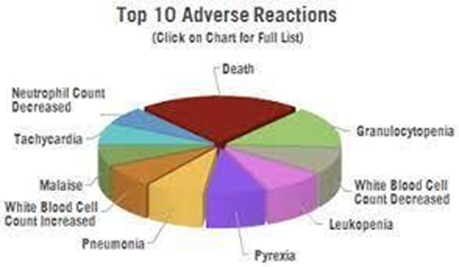What is the therapeutic range of Lithium (Eskalith)?
0.6-1.5
0.1-0.5
0.2-0.5
0.4-1.6
The Correct Answer is A
Choice A rationale: The therapeutic range of lithium is generally considered to be 0.6-1.5 mEq/L. However, some patients may require higher or lower levels depending on their individual response to the medication and their clinical condition. Lithium has a narrow therapeutic range hence the blood level of the drug should be closely monitored to minimize the risk of toxicity and sub-therapeutic effects.
Choice B rationale: 0.1-0.5 is too low hence the drug will provide sub-optimal effects thus providing inadequate mood stabilization.
Choice C rationale: 0.2-0.5 is too low hence the drug will provide sub-optimal effects thus providing inadequate mood stabilization.
Choice D rationale: 0.4-1.6 the lower limit is too low and may result in sub-therapeutic effects while the upper limit is too high and increases the risk of lithium toxicity which can manifest as nausea, vomiting, tremors, seizures, and death in severe cases.
Nursing Test Bank
Naxlex Comprehensive Predictor Exams
Related Questions
Correct Answer is D
Explanation
Choice A rationale: Clozapine has no effect on a patient’s blood pressure levels. However, blood pressure monitoring for all patients is crucial but the temperature is more relevant for a patient on clozapine.
Choice B rationale: Clozapine has no effect on an individual’s respiratory rate hence in this case it is not the priority vital sign to monitor.
Choice C rationale: Clozapine use does not cause pain. Furthermore, pain is not a vital sign.
Choice D rationale: One of the side effects of clozapine is agranulocytosis hence this predisposes the patient to infections which may manifest with fever. Therefore, it is important to monitor the patient’s temperature while on treatment.

Correct Answer is A
Explanation
Lability refers to the rapid and unpredictable shift in an individual’s emotional states, for instance, an individual may move from laughing to crying within a span of seconds with no apparent reason. This may affect the individual’s ability to function and cope with daily life, as well as their relationships with others. It is caused by conditions such as brain injury, neurological disorders, mood disorders, or substance abuse.
Whether you are a student looking to ace your exams or a practicing nurse seeking to enhance your expertise , our nursing education contents will empower you with the confidence and competence to make a difference in the lives of patients and become a respected leader in the healthcare field.
Visit Naxlex, invest in your future and unlock endless possibilities with our unparalleled nursing education contents today
Report Wrong Answer on the Current Question
Do you disagree with the answer? If yes, what is your expected answer? Explain.
Kindly be descriptive with the issue you are facing.
